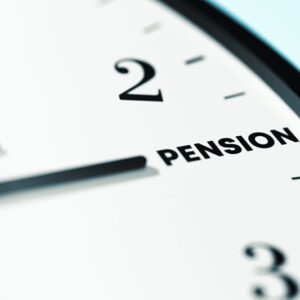Pension or ISA?


I have roughly £25,000 spare cash sitting in my current account. I’m torn between putting this money into my pension fund or putting it into an ISA instead. What would you suggest?
Carl responds:
When deciding whether to pay into a pension or an ISA, there are several factors that you should take into account – such as accessibility, tax relief, and inheritance rules. You’ll also need to consider your financial circumstances and your goals and objectives for the future.
Currently, the maximum amount you can save in an ISA is £20,000 per tax year, and you can withdraw the money as and when you need it. However, the maximum amount you can save into your pension and receive tax relief is currently 100% of your salary. If you earn less than £3,600, or in fact have no earnings, you are still entitled to tax relief on contributions up to £3,600. In addition, there is a pension funding limit called the annual allowance, which is £60,000 per tax year for most people – the annual allowance relates to your total contributions from all sources including your employer, and if exceeded means a tax charge on the excess. Your annual allowance can be more or less than this depending on your circumstances. Furthermore, you will not be able to access funds from your pension until you’re at least 55 years old – due to go up to age 57 in April 2028.
Pensions
When you pay money into a pension, such as a personal pension plan, you get an income tax refund on that money even if your income isn’t high enough for you to pay income tax. If you’re a non-taxpayer or a basic rate taxpayer, you receive 20% tax relief, e.g. you will get an additional £2 for every £8 you contribute. Higher and additional rate taxpayers can claim a further 20% and 25% respectively through their Self-Assessment tax returns for contributions matched by income taxed at those rates.
Your pension fund will be invested for long-term growth, which is likely to mean at least some exposure to stocks and shares. As a result, it will be affected by changing markets. Any interest or gains will not be taxed until you start to withdraw from the fund. Generally, 25% of your pension fund can be drawn free of tax; however, you may find that the remaining 75% is subject to income tax.
ISAs
It’s worth mentioning that ISAs offer tax-free returns. This means that any interest or growth isn’t taxed, and any withdrawals you make are free of tax. However, some ISAs will have a fixed term and you may be charged a penalty if you take your money out early. There are two main types of ISAs: Cash and Stocks & Shares ISAs. Cash ISAs provide an easy way to earn interest on your money, while Stocks & Shares ISAs aim to generate more significant growth by investing your money in areas such as the stock market.
Finally, a significant difference between pensions and ISA is that pensions are subject to a lifetime allowance (currently £1,073,100) but due to be removed after 05/04/2023, whereas ISAs have no such limit. The lifetime allowance is the maximum amount of tax relieved pension savings from all sources that a person can build up over their lifetime. Tax relief on benefits taken over this amount is recovered by the application of tax at 25% if taken as income of 55% if taken as a lump sum. This is an important consideration, especially if you are looking to invest a large sum.
I would recommend seeking independent financial advice to work out a clear strategy. An Independent Financial Adviser can work with you to define your goals and create a plan to achieve them. Your adviser will want to know all about you – financially and personally – so that they can give the best advice that is right for you.
Any opinions expressed in this article do not constitute advice. The value of an investment and the income from it could go down as well as up. The return at the end of the investment period is not guaranteed and you may get back less than you originally invested.











